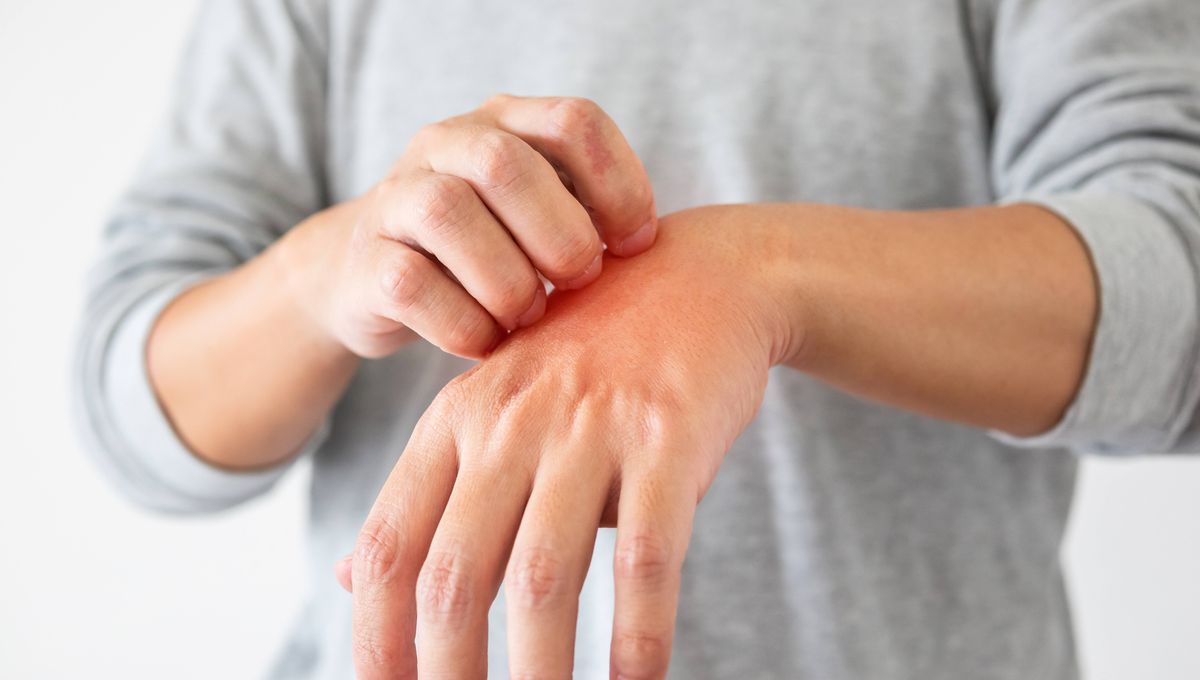
How many times were you told not to scratch an itchy rash when you were a kid because you’d only make it worse? Well, it turns out that advice was actually correct and now we know why, according to a new mouse study.
ADVERTISEMENT GO AD FREE
Let’s face it, scratching an itch can be extremely pleasant, especially if the itch itself is overly annoying. Anyone who has had an insect bite will know just how strong the urge to get your nails into that puffy red mark can be almost irresistible. It is an evolutionarily conserved behavioral response to skin irritation.
So this raises a question: if it feels so good, how can scratching an itch be bad for you?
“Scratching is often pleasurable, which suggests that, in order to have evolved, this behavior must provide some kind of benefit,” Daniel Kaplan, professor of dermatology and immunology at the University of Pittsburgh and senior author of a new study, said in a statement.
“Our study helps resolve this paradox by providing evidence that scratching also provides defense against bacterial skin infections.”
Allergic contact dermatitis is an allergic reaction to allergens that irritate our skin. It can come from various sources, including contact with rubber, cosmetics, or glues, as well as plants like poison ivy, sunflowers, chrysanthemums, and tulips, some metals like nickel or cobalt, and even medicines, such as antibiotics. Of course, symptoms of this condition can include the development of itchy, swollen rashes.
If you are not able to resist it, you might decide to scratch these red patches, but doing so can trigger further inflammation that makes it itchier and slows down recovery time.
ADVERTISEMENT GO AD FREE
So what’s behind this vicious circle? Well to investigate it, Kaplan and colleagues used itch-inducing allergens to produce eczema-like symptoms on the ears of “normal mice” and those that don’t get itchy because they lack an itch-sensing neuron.
When the normal mice were allowed to scratch, their ears became swollen and inflamed with immune cells called neutrophils. The mice that could not scratch their ears – either because they wore tiny collars like Elizabethan ruffs or the cones put on dogs after the vet, or were animals that lacked the itch-sensing neuron – had milder swelling and inflammation, in contrast.
This demonstrated that scratching does indeed further aggravate the skin.
Next, the researchers showed that scratching also causes pain-sensing neurons to release a compound with a sci-fi-like name: substance P. This is a neuropeptide that acts as a neurotransmitter and neuromodulator. When released, substance P activates mast cells, key coordinators of inflammation that drive itchiness and inflammation via the recruitment of neutrophils.
ADVERTISEMENT GO AD FREE
“In contact dermatitis, mast cells are directly activated by allergens, which drives minor inflammation and itchiness,” Kaplan added. “In response to scratching, the release of substance P activates mast cells through a second pathway, so the reason that scratching triggers more inflammation in the skin is because mast cells have been synergistically activated through two pathways.”
Mast cells are tricky buggers. They are responsible for a range of inflammatory skin conditions and allergic reactions, but they also help protect against bacteria and other pathogens. This, the researchers speculate, could mean that scratching-induced activation of mast cells could affect the skin microbiome.
Experiments led by Marlies Meisel, assistant professor of immunology at Pitt and co-author of the new study, showed that scratching reduced the amount of Staphylococcus aureus – the most common bacteria involved in skin infection – on the skin.
“The finding that scratching improves defense against Staphylococcus aureus suggests that it could be beneficial in some contexts,” said Kaplan. “But the damage that scratching does to the skin probably outweighs this benefit when itching is chronic.”
ADVERTISEMENT GO AD FREE
Kaplan and colleagues are now investigating new therapies for dermatitis and other skin conditions, including rosacea and urticaria, which suppress inflammation by targeting receptors on mast cells.
The paper is published in Science.
Source Link: Got An Itchy Rash? Now We Know Why You Probably Shouldn't Scratch It